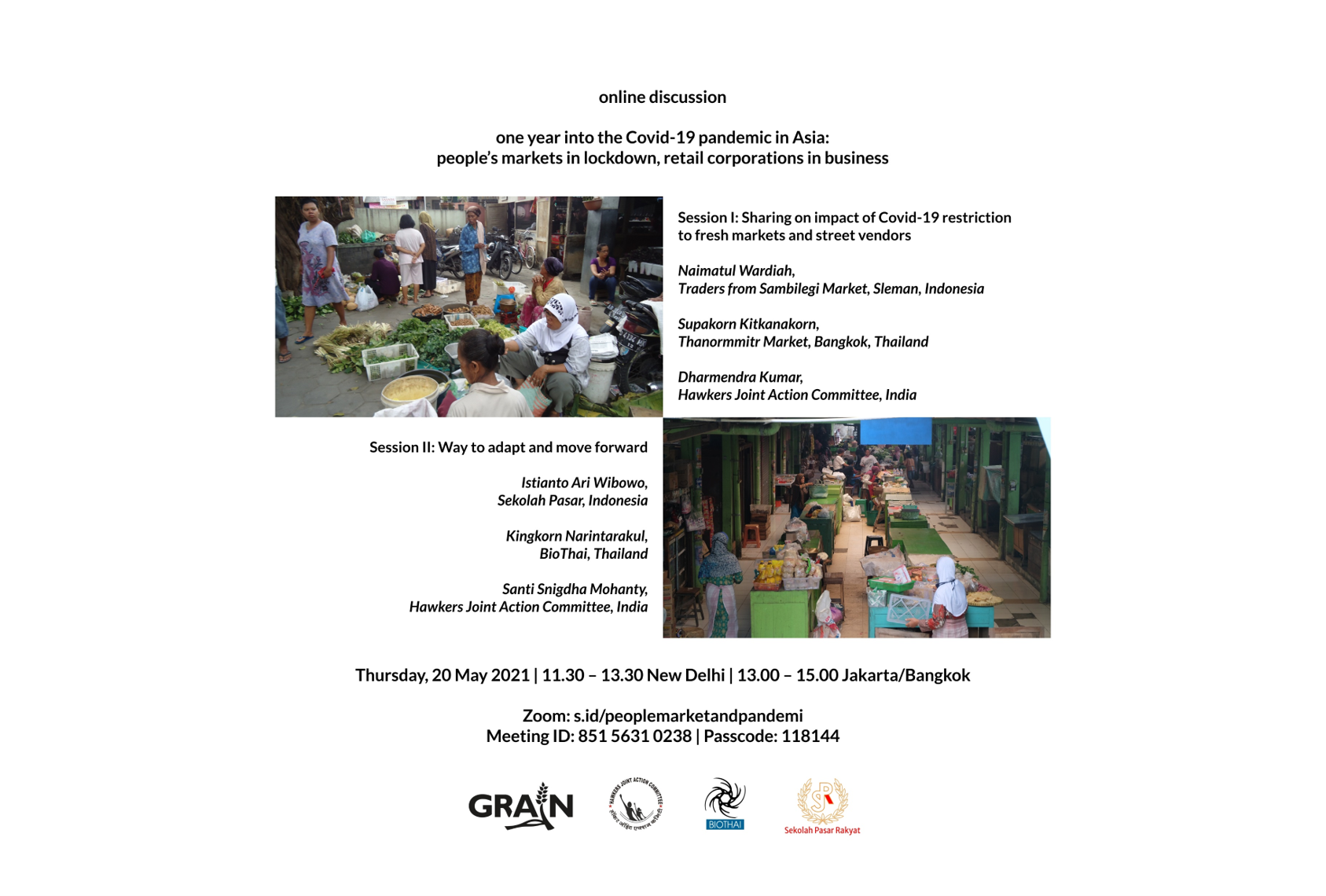The Covid-19 pandemic created huge challenges, not only for the health of the whole world’s population but also for the global economy decrease and people’s livelihoods. The first wave of lock down measures generated a panic buying of food that largely bypassed the vendors and small farmers who rely on wet markets to sell their products, as authorities blamed these markets for disease outbreaks.
By shutting down public spaces , the authorities also prevented street vendors from accessing the spaces and streets where they work. Every single day of lock down for a street vendor or a fresh market trader is a loss of the basic income they require to make ends meet.
Government closures of open air markets and public spaces to prevent the spread of coronavirus left millions of vendors from Manila to Mumbai jobless, without any social protections. They also cut people off from the places where most people buy their food.
As restrictions on people’s movement grew tighter and lock down continued, people had little choice but to turn more and more to e-retailers for their food purchases. As a result, e-commerce grocery chains made enormous profits during the pandemic.
The fight for space and customers is intensifying between the local and territorial markets and the global markets, represented by supermarket and convenience store chains, as well as the rapidly growing e-commerce companies.
And the regulations brought in during the pandemic are increasing the persecution and repression of small food producers, open-air market traders, and street vendors
around the world.
This initiative aims to bring together experiences from different countries and communities for a vibrant and crucial discussion about the kind of markets we are fighting for and what communities can do to prevent street vendors and informal traders from going through a situation of extreme vulnerability.
This is part of a long-term effort to stimulate more collective action and unity between food producers and small-scale food vendors that GRAIN, and groups on the ground such as BioThai, India Hawkers Federation and Sekolah Pasar in Indonesia have done over the past years to try and facilitate more information sharing and analysis among groups in the region, including through the quarterly bulletin ‘Supermarket watch Asia’.
Session I: Sharing on impact of Covid-19 restriction to fresh markets and street vendors
Naimatul Wardiah, Sambilegi Market, Sleman, Indonesia
Mr.Supakorn Kitkanakorn, Thanormmitr Market, Bangkok, Thailand
Dharmendra Kumar, Hawkers Joint Action Committee, India
Session II: Way to adapt and move forward
Istianto Ari Wibowo, Sekolah Pasar, Indonesia
Kingkorn Narintarakul, BioThai, Thailand
Ms. Santi Snigdha Mohanty, Hawkers Joint Action Committee, India
Thursday, 20 May 2021
13.00 – 15.00 Jakarta/Bangkok
11.30 – 13.30 New Delhi
Zoom: s.id/peoplemarketandpandemi
Meeting ID: 851 5631 0238
Passcode: 118144
The online discussion will be in English, translations available to Hindi, Indonesia, Thai.
Co-organise by: BioThai, GRAIN, Hawkers Federation Joint Committee, Sekolah Pasar

